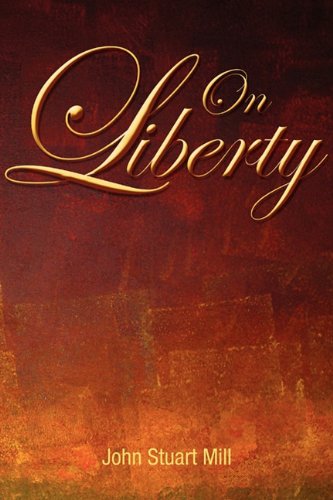Silencing Opinion is a 'peculiar evil'
In his celebrated little book, On Liberty, the English philosopher John Stuart Mill argued that silencing an opinion is 'a peculiar evil'. If the opinion is right, we are robbed of the 'opportunity of exchanging error for truth'; and if it's wrong, we are deprived of a deeper understanding of the truth in 'its collision with error'. If we know only our own side of the argument, we hardly know even that; it becomes stale, soon learned only by rote, untested, a pallid and lifeless truth.
Mill also wrote, 'If society lets any considerable number of its members grow up as mere children, incapable of being acted on by rational consideration of distant motives, society has itself to blame.' Jefferson made the same point even more strongly: 'If a nation expects to be both ignorant and free in a state of civilization, it expects what never was and never will be.' In a letter to Madison, he continued the thought: 'A society that will trade a little liberty for a little order will lose both, and deserve neither.'
Notes:
A summary by Carl Sagan, not a direct quote.
Folksonomies: rhetoric debate free inquiry
Taxonomies:
/society (0.750926)
/society/crime/property crime/robbery (0.408171)
/society/crime/sexual offence/rape (0.407712)
Keywords:
celebrated little book (0.909748 (neutral:0.000000)), peculiar evil (0.809603 (negative:-0.581085)), Carl Sagan (0.765128 (negative:-0.470463)), direct quote (0.719825 (negative:-0.405203)), English philosopher (0.711954 (neutral:0.000000)), lifeless truth (0.698884 (negative:-0.846393)), John Stuart (0.692625 (neutral:0.000000)), deeper understanding (0.689785 (neutral:0.000000)), mere children (0.681102 (neutral:0.000000)), considerable number (0.679132 (positive:0.233599)), distant motives (0.676603 (positive:0.232089)), rational consideration (0.666231 (positive:0.232089)), little liberty (0.609989 (negative:-0.821795)), opinion (0.597559 (negative:-0.600920)), little order (0.592137 (negative:-0.821795)), error (0.452495 (negative:-0.640606)), society (0.447656 (positive:0.274345)), pallid (0.350751 (negative:-0.846393)), ignorant (0.328335 (negative:-0.561285)), argument (0.310145 (neutral:0.000000)), collision (0.306473 (neutral:0.000000)), summary (0.293186 (negative:-0.470463)), civilization (0.287526 (negative:-0.561285)), Jefferson (0.286216 (neutral:0.000000)), thought (0.280955 (neutral:0.000000)), Madison (0.280920 (neutral:0.000000)), members (0.280509 (neutral:0.000000)), letter (0.278878 (negative:-0.454417)), blame. (0.278671 (negative:-0.584433))
Entities:
John Stuart Mill:Person (0.941514 (neutral:0.000000)), Carl Sagan:Person (0.639395 (negative:-0.470463)), Madison:Person (0.498343 (neutral:0.000000)), Jefferson:Person (0.412387 (neutral:0.000000))
Concepts:
John Stuart Mill (0.965688): dbpedia | freebase | yago
Liberty (0.730076): dbpedia | freebase
Political philosophy (0.700762): dbpedia | freebase | opencyc
Liberalism (0.660698): dbpedia | freebase
Utilitarianism (0.631118): dbpedia | freebase
On Liberty (0.587056): dbpedia | freebase | yago
Freedom of speech (0.566757): dbpedia | freebase
Harm principle (0.566749): dbpedia | freebase





